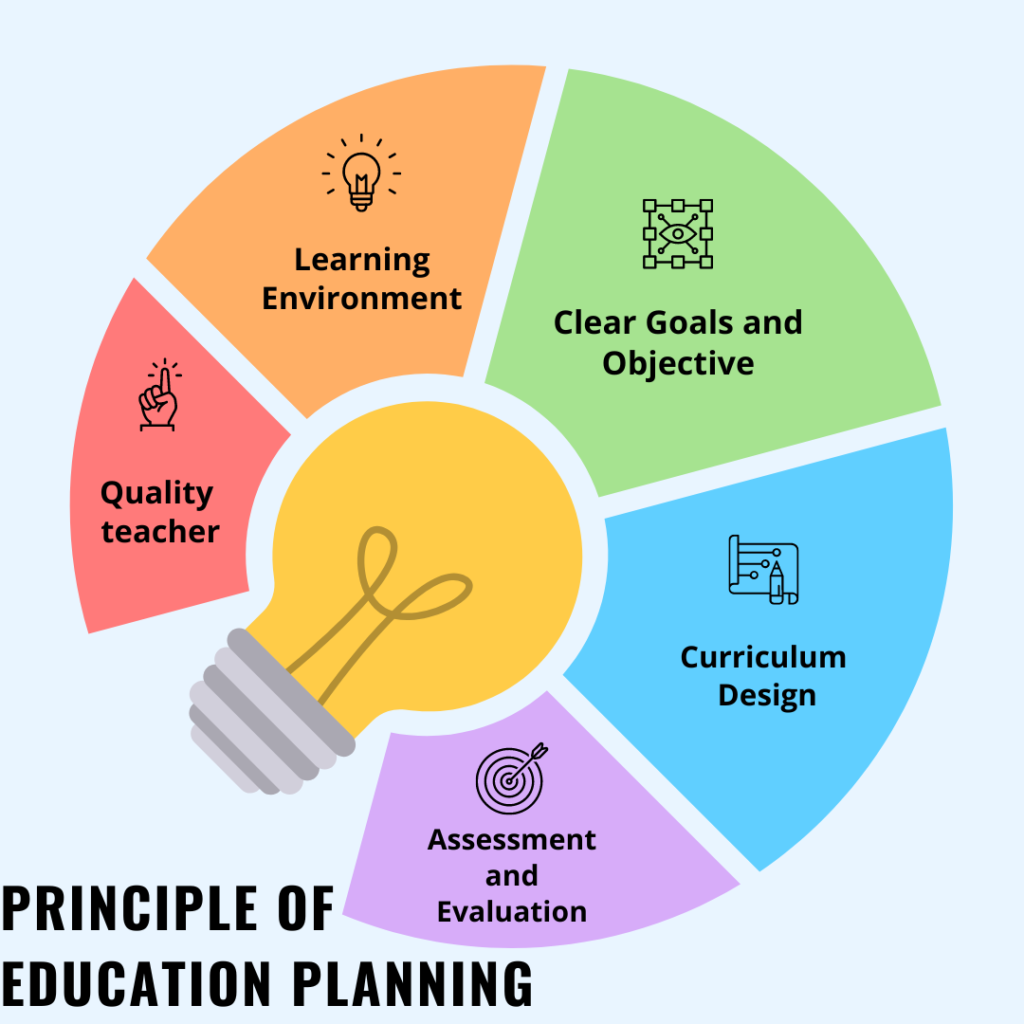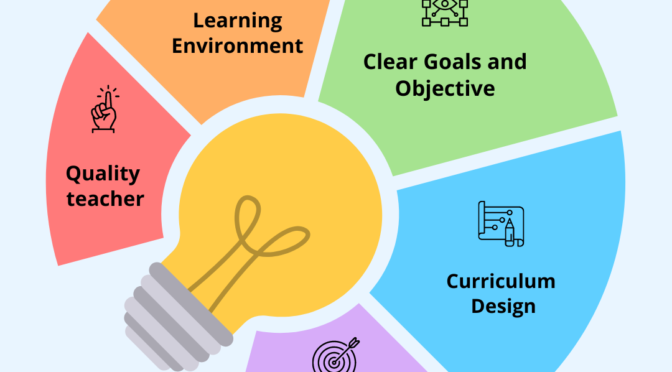The principle of education planning for secondary level involves several key factors that need to be considered to ensure effective and successful learning outcomes for students. Some of the key principles of education planning for secondary level include:
- Clear Goals and Objectives: Setting clear goals and objectives is essential for effective education planning. This involves defining what students should know and be able to do at the end of a specific period of time and identifying the key learning outcomes that need to be achieved.
- Curriculum Design: The curriculum should be designed to meet the learning needs of students at the secondary level. It should include a broad range of subjects and be organized in a way that is easy for students to understand and follow.
- Assessment and Evaluation: Assessment and evaluation play an important role in education planning at the secondary level. It is important to develop appropriate assessment methods to ensure that students are meeting learning objectives and to identify areas where they may need additional support.
- Quality Teachers: The quality of teaching is critical for successful education planning at the secondary level. Teachers should be well-trained, experienced, and committed to helping students learn and achieve their potential.
- Learning Environment: The learning environment should be conducive to learning and support student engagement and motivation. This includes factors such as classroom design, resources, and the use of technology.
- Parent and Community Engagement: Parent and community engagement is important in education planning at the secondary level. This involves creating partnerships with parents, community leaders, and local organizations to support student learning and development.
By following these key principles educators can create effective and successful learning environments.
Also visit: Prep with Harshita


